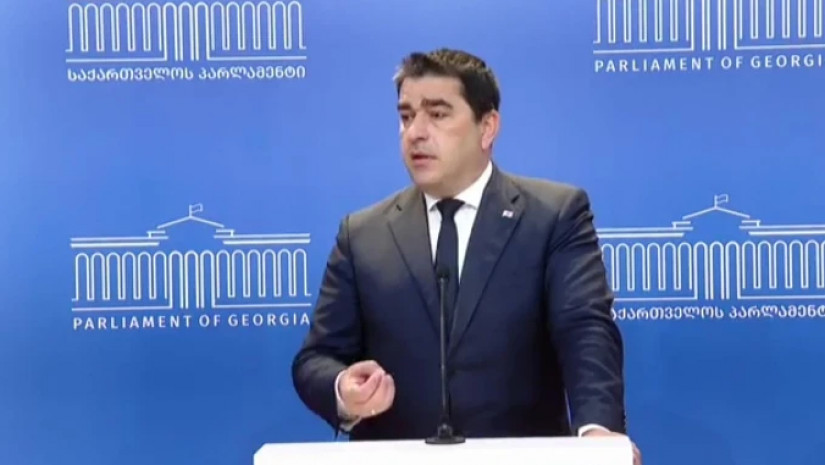“When we applied for candidate status and signed the Association Agreement, we ordered European standards and European justice, but what did we get? We got European hatred, European violence, and European propaganda because they identify themselves with hatred, violence, and propaganda,” Georgian Parliament Speaker Shalva Papuashvili declared on the GPB First Channel program Topic of the Day.
In response to the host’s question regarding his appeal to the EU Ambassador, the Parliament Speaker urged Paweł Herczyński to distance himself from and condemn the manifestations and acts of violence and hatred that are being orchestrated by organisations or groups funded by the EU Embassy. While the West highlights anti-Western rhetoric, the persecution of political opponents, and their arrests as damaging to these relationships, and points to steps that have worsened the situation, Papuashvili countered with a question: “Should people funded by them curse us because of this?”
“Are they justifying that since they might not like something about the government, they should fund people who attack parliament members together with minor children, who show up at night at the vice parliament speaker’s house where he lives with his minor child? So, violence, propaganda, and disinformation are justified by this? If you attribute something to Europe, can you also include hatred, hostility, and falsehoods? Unfortunately, this is the reality we face,” Papuashvili stated.
As Papuashvili noted, he consistently emphasised during his conversations with ambassadors that they must take responsibility for ensuring transparent funding. However, they never heeded this advice.
“Among them, I have already addressed the EU Ambassador, informing him that I have sent cases and facts. I received a response to that previous letter. I detailed specific instances where individuals funded by the EU embassy curse politicians with obscene language, attack public figures, and spread disinformation — in essence, propaganda. What could be more than the facts? The list is long. Yet, the response I received was simply that polarisation is difficult and unfortunate and that neither side is giving anyone a break. That’s all. What are our expectations? Our expectation is clear: public distancing. Here’s why this is so important.
Today, it is evident that, particularly after the U.S. ceased funding for these movements, the European Union and its member states have become the sole remaining sources of support. Consequently, all this hatred, violence, propaganda, and disinformation is now financed from the budgets of the European Union and its member countries. When representatives appear in the European Parliament every day — including today when we hear support for this or that activist or NGO — does that imply approval of their actions? When specific individuals attack parliament members with young children, insult them publicly on social media, and curse them with unkind words, what does that say? I personally appealed to Paweł Herczyński on this matter,” Papuashvili stated.
According to the Speaker, both letters to Paweł Herczyński specifically addressed this issue.
“I am writing to him to highlight that individuals funded by them are attacking, committing violence, and using obscene language, and I call on him to publicly state that this is not European behaviour. Yet, they do not say this publicly — and do you know why? What is stopping them? Why can’t they say it? Do you know why they remain silent? Because as soon as the EU Ambassador, a European Commissioner, or another diplomat publicly condemns someone approaching a parliament member with minor children, or insults a parliamentarian with obscene words, then acts of pressure on children, violence, fireworks, or stones thrown at police officers — all these actions — are no longer considered acceptable European behaviour. At that very moment, they would strip away the legitimacy they currently, from outside, lend to these violent groups,” declared Papuashvili.




